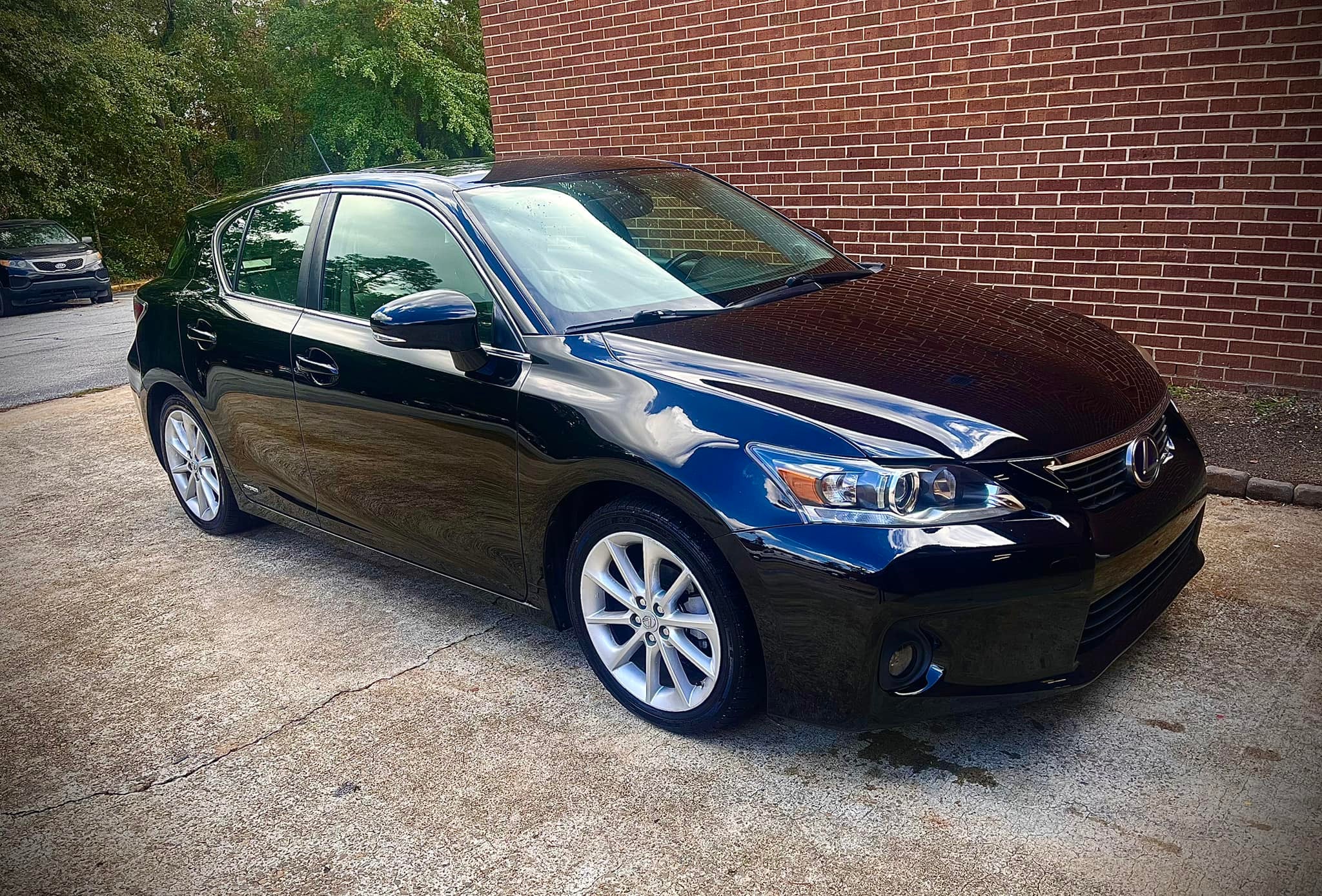One year ago, I purchased a 2013 Lexus CT200h as a daily driver. Since day one, I documented every cent I spent on fuel, maintenance, and repairs to see if it was a good choice economically. While the automotive world seems to revolve around full electric vehicles, is there any room for hybrids on the car lots in America?
The car I traded in for the hybrid was a 2017 Volkswagen Jetta GLI. It was an amazing car to drive, but fuel costs and maintenance were higher than I wanted. I was looking at about a $3,500 investment in coming maintenance and repairs if I kept it, so I decided that it was a good time to trade.
I got over $1,500 more than I paid for the Jetta in on trade value, which made the deal even sweeter.
I wanted a hybrid vehicle for a few reasons, mainly saving money and to have a vehicle to teach my students with. With that in mind, I decided against buying a new car. I limited my purchase price to $15,000, as any more than that, it would not make sense getting one to save money.
It took me about two months to find the CT200h, which is one of the better hybrid designs on the market, in my opinion. With the same tested drivetrain of the Prius, the luxury of a Lexus, and the sporty appearance, I felt it was something I could live with driving.
Selling for about $13,500, it matched my budget. A year later, I still have it with no plans to trade any time soon.
In one year, I traveled 11,682 miles in the Lexus, which is slightly under the average of 13,476 miles consumers drove in 2022, according to the Federal Highway Administration. Most of those miles are back and forth to work, which is 90% highway, in my estimation.
I also used it on the weekends, shuffling through errands and chores with my wife. She drives an SUV, so we take my car to save on fuel. I do not drive the car conservatively or change my route to save fuel.
In those miles, I used 292.7 gallons of 87 octane fuel, at a cost of $992.93.
In the Jetta, I was using nearly $300 of 93 octane a month. That is a huge savings on fuel. Due to the Lexus’s small fuel tank, I did have to fill up 39 times, but I was filling up about once a week before.
All in all, I was averaging 39.91 miles per gallon, which is slightly lower than the EPA estimate of 42 miles per gallon the car was supposed to get. Still, that’s not bad for a car with ten years on it.
If you drive more city miles where regenerative braking helps keep the battery charged, you will get much better mileage. I also keep the car in “sport mode” mostly, due to the fact the “eco” mode makes the car more of a snooze fest than it already is. Zero-to-60 miles per hour takes 10 whole seconds, with the car screaming for help the whole way.
Another advantage to this car is the maintenance costs.
While Lexus is known to be a luxury brand, most of their powertrains are Toyota based. If you have ever had a Toyota before, you know that parts are cheap, and this is no exception. Due to me buying a car with maintenance records and history, I knew the only thing it was due for last year was spark plugs.
Between those, three oil changes, a set of wipers, and headlight bulb LED upgrades, my maintenance costs for the year were roughly $370. That doesn’t include labor, however, as I do all the work myself.
This upcoming year I plan to replace the water pump, clean the EGR system, and change the transmission fluid, at a projected cost of around $400. None of these items are on the maintenance schedule, but they are soft points on this car being over 10 years old and can cause much larger issues if failed.
With the car being older and with already 120,000 miles on the odometer, I know in the future I will probably have some larger repairs. The high voltage battery, while still strong, will probably fail sooner than later.
With new Toyota batteries being $2,500, I would not be too upset investing in one to keep the car going for another decade or so. I’ve saved that much already.
In conclusion, I think that there are plenty of people that could benefit from new and even used hybrid vehicles. With great fuel economy and no worry of range anxiety, they solve problems that traditional combustion cars and EVs create.
They are just so dang slow!
Until next time, see you on the road! In the right lane, of course.











